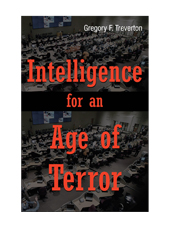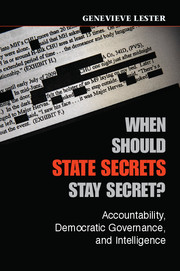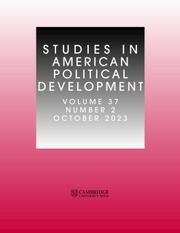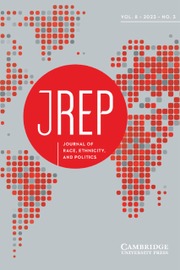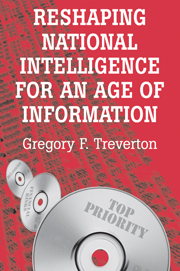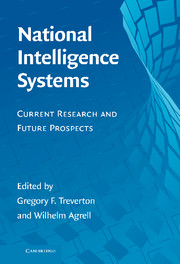Intelligence for an Age of Terror
During the Cold War, U.S. intelligence was concerned primarily with states; non-state actors like terrorists were secondary. Now the priorities are reversed. And the challenge is enormous. States had an address, and they were hierarchical and bureaucratic. They thus came with some “story.” Terrorists do not. States were “over there,” but terrorists are there and here. They thus put pressure on intelligence at home, not just abroad. They also force intelligence and law enforcement – the CIA and the FBI – to work together in new ways, and if those 700,000 police officers in the United States are to be the eyes and ears in the fight against terror, new means of sharing not just information but also analysis across the federal system are imperative. The strength of this book is that it underscores the extent of the change and ranges broadly across data collection and analysis, foreign and domestic, as well as presenting the issues of value that arise as new targets require collecting more information at home.
- Comprehensive look at terrorism across all intelligence functions from analysis to covert action to oversight
- Comparative analysis drawing on the experience of US friends and allies, whose challenges parallel those the United States faces
- Enriched by the author's experience as a member of the National Security Council staff and vice chair of the National Intelligence Council
Reviews & endorsements
“Intelligence for an Age of Terror provides the realistic and comprehensive template necessary for a reform of American intelligence programs. Gregory Treverton has relied on his long experience with the intelligence community and his wide and careful reading to produce what I believe to be the most valuable book on intelligence reform today. It will be widely read within the community, as it deserves to be. I hope it will be equally relied on as we undertake the difficult task of reconceptualizing the daunting challenge of providing understanding to leadership.” – Phillip Bobbitt, Columbia University
“Dr. Treverton has provided thoughtful ideas for policy makers for improving performance of the U. S. intelligence community. The book will also be a useful guide to those who want to work in one or more of the intelligence organizations.” – Admiral Robert Inman, University of Texas, Austin, and former Deputy Director, Central Intelligence Agency
“More than seven years after 9/11, America’s national intelligence services are still struggling to meet the challenges posed by today’s terrorist adversaries. In this important new book, Gregory Treverton guides us through the organizational and operational issues faced by the intelligence community, and the profound political and philosophical questions we all face in governing intelligence today. For policy makers and concerned citizens, an essential read.” – Brian Jenkins, RAND Corporation
“Greg Treverton is a pro’s pro. This superb book is the best guide we will have for a long time to the difficult transition our intelligence community is experiencing from the Cold War to today’s Long War with Terror. If you read one book on this subject, read this.” – R. James Woolsey, Former Director of Intelligence (1993–95), Central Intelligence Agency
"This book is [Treverton's] most important yet."
CHOICE, H. Nelson, University of South Florida
Product details
March 2009Hardback
9780521518451
320 pages
236 × 160 × 21 mm
0.57kg
5 b/w illus. 13 tables
Available
Table of Contents
- 1. Introduction
- 2. The changed target
- 3. The Cold War legacy
- 4. The imperative of change
- 5. The agenda ahead
- 6. The special challenge of analysis
- 7. Many customers, too many secrets
- 8. Covert action: forward to the past?
- 9. Rebuilding the social contract.

